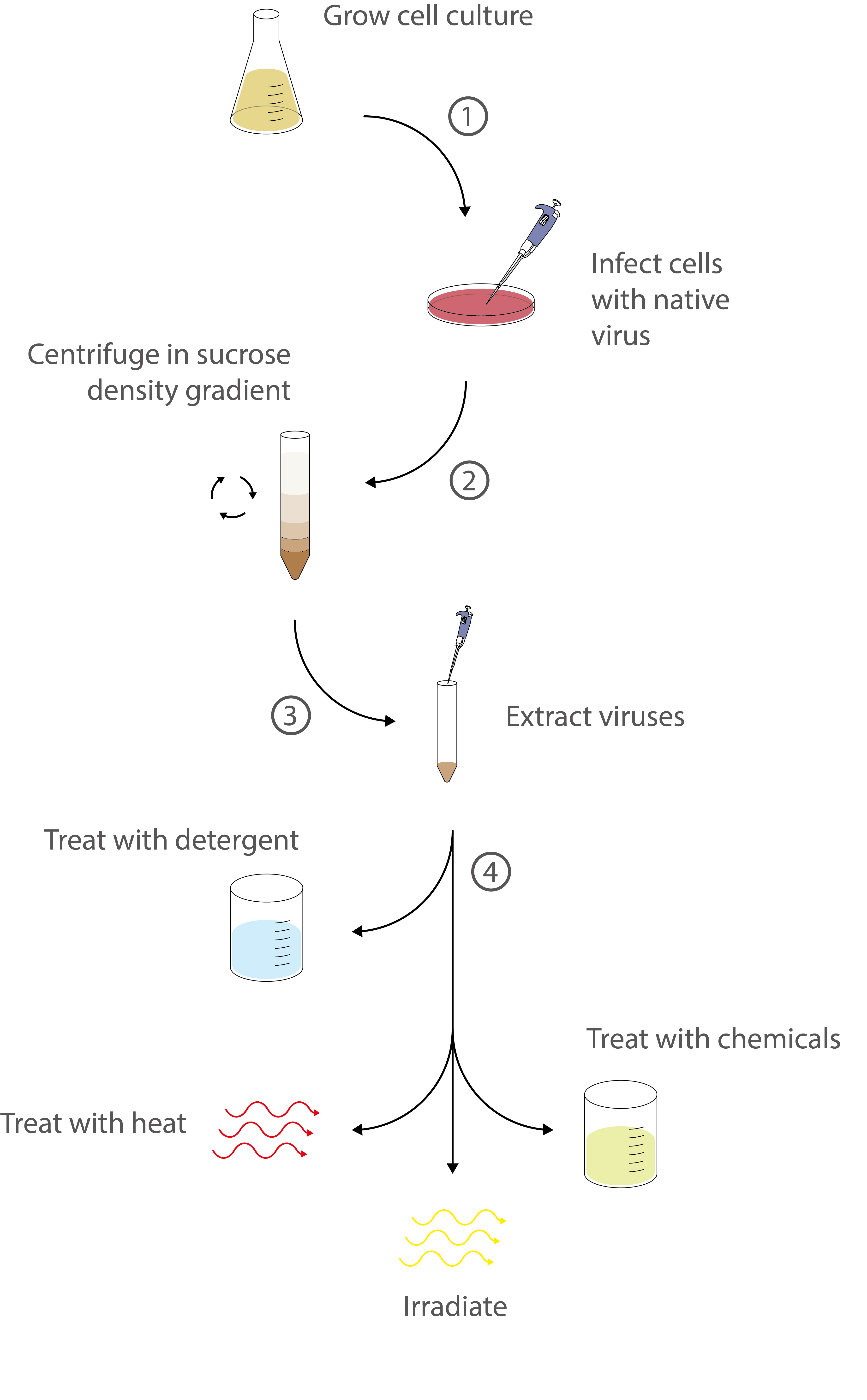We’ve recently expanded our range of native viral cell lysates to complement our highly pure recombinant antigens. Here, we explain how our lysates are made and their uses in infectious disease R&D.
What are viral lysates?
Put simply, viral lysates are extracts of native virus from infected cells that have been treated to make them inert and safe for use. As a result, they contain a variety of native antigenic proteins and are able to elicit unique immune responses. Viral lysates are typically produced as follows:
1) Permissive cells are grown up in culture and infected with native live virus and cultured to allow sufficient viral replication.
2) The cell culture supernatant is added to a density gradient and ultracentrifuged until distinct bands are formed. Whole viruses have a different density to free proteins and cell debris, forming a recognisable band at a specific density.
3) The viruses are recovered from the gradient.
4) The viruses are then inactivated to make them safe for use. For enveloped viruses, this is done with detergent; For non-enveloped viruses, this is commonly done by heat, chemical or gamma radiation treatment.

What are viral lysates used for?
A key characteristic of native viral lysates is that they contain all of the proteins that make up the virus, in the same structure as the virus is found in the host that it is infecting. This provides a source of antigens suitable for more complex or demanding immunoassays, where the total response to a virus rather than just a single antigen is being measured. This so-called ‘antigenic polyvalency’ of lysates allows the design of assays that are able to detect a wider range of antigens, and therefore increases sensitivity for detecting a pathogen. Lysate-derived antigen isoforms also show their utility in being able to stimulate immune responses that more closely match that of viruses in vivo.
In addition to diagnostic assays, typical applications include:
> Immunogens for raising antibodies. For example, to raise new monoclonal or polyclonal antibodies for the development of new assays or therapeutic reagents.
> As targets for studying the immune response to viral infection – either in ELISA or Western Blot (an ELISA will give an indication of an overall response, whilst Western Blots allow researchers to see which proteins the antibody response is directed against).
> As a source for purifying specific proteins from the total lysate.
Our new lysate range
We now offer an extensive range of lysates from a variety of virus strains – Click on the buttons below to find out more:

